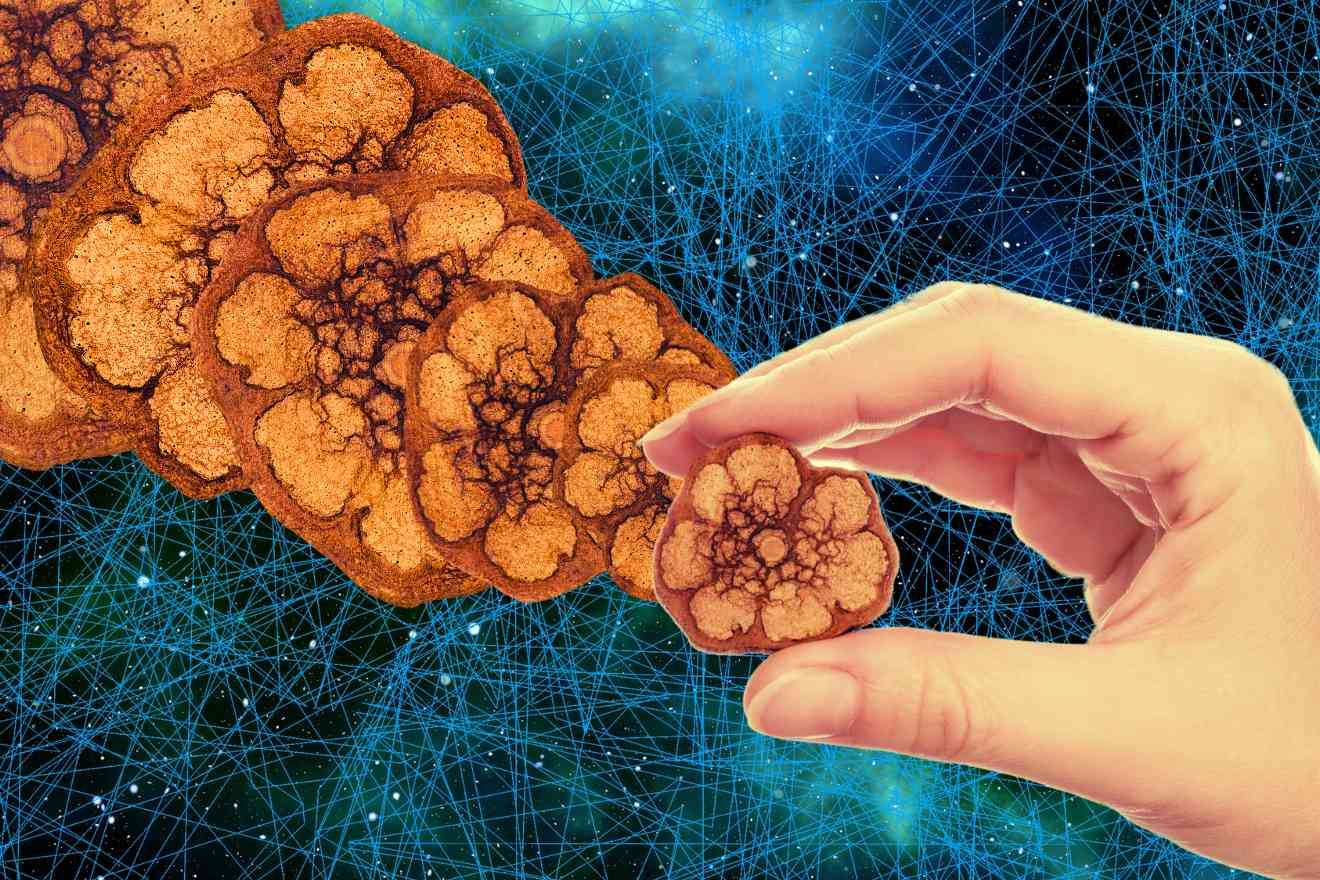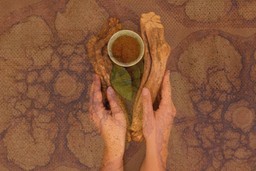Ayahuasca integration refers to the process of making sense of, and applying to everyday life, what one experienced in one or more sessions with ayahuasca. This Amazonian psychedelic brew is being explored for its therapeutic benefits in the West, with studies linking its use to improvements in various forms of mental distress [1] and addiction [2]. However, there is a lack of research on ayahuasca integration—that is, what people experience post-session.
A new study published in the journal Psychoactives in June of this year has helped to correct this gap in knowledge [3]. The researchers behind the study carried out a qualitative analysis of the integration experiences of 1,630 ayahuasca drinkers, exploring the themes, practices, and challenges that applied to these users. They found that “integrating ayahuasca experiences can be challenging and take considerable time, though working through integration challenges may facilitate positive growth.” This point may seem obvious to those who have tried to make sense of a profound ayahuasca experience, but some other conclusions are intriguing.
The authors add that their findings “challenge the role of individual psychotherapy as the primary integration tool in Western psychedelic therapy, suggesting that communal and somatic elements may also be useful. ”Moreover, they propose an expanded definition of psychedelic integration, “which includes working with integration challenges and adjusting to life changes.”
Ayahuasca Ceremony Study Design
This qualitative study used data from a global online survey conducted between 2017 and 2019. The data was gathered by the Global Ayahuasca Project, and studied 10,836 users from 44 countries who had attended ayahuasca ceremonies in a range of settings (traditional, religious, and non-traditional) and locations all over the world. This project collected information related to:
- Demographics (age, sex, and level of education were recorded, but ethnicity was not)
- Ayahuasca drinking experiences (e.g., number of experiences, contexts surrounding their sessions, insights and life changes, adverse effects in the weeks and months after drinking ayahuasca, and integrating ayahuasca experiences)
- Current mental health
These participants were recruited for the survey via social media, websites, and email lists of relevant organizations, retreat centers, ayahuasca churches, online interest groups and forums, and flyers distributed at conferences and events.
Data for the integration study were taken from a subset (1,630) of the total sample who responded to an open-ended question about their integrating ayahuasca experiences after using the medicine. The question asked, “Please add anything you would like about your integration experiences below”.
Participants were 822 males, 800 females, and 8 who did not specify sex, aged 18-80 (mean age: 43 years). Of the 1,630 responses, 554 were deemed overly short or general (e.g., “integration is great” or “nothing to add”), unrelated to the question (e.g., describing the ayahuasca experience itself), or unclear in meaning. From the remaining 1,076 responses, three overarching themes and various sub-themes emerged.
The Common Themes of Ayahuasca Integration
The three main themes of ayahuasca integration were:
- An overall appraisal of the integration experience (easy, challenging, or long-term/ongoing)
- Beneficial tools which aided integration (e.g., connecting with a like-minded community and an ongoing practice of yoga, meditation, prayer, spending time in nature, making art or music, and journaling)
- Integration challenges (e.g., feeling disconnected, going back to their “old life” with new understandings, etc.)
Variations in Integration Experiences
Responses were not notably skewed toward either easy or challenging integration experiences. However, those who gave detailed accounts did describe more complex or challenging experiences. This may reveal more about the prominence of these challenges than their prevalence. Challenging integration experiences, nonetheless, are fairly common: a previous study from the same researchers, the Global Ayahuasca Project, found that 55.4% of 7,839 survey participants reported experiencing mental and emotional challenges in the weeks and months after drinking ayahuasca [4].
Integration Can Be a Lengthy Process
For those who reported that their integration was an ongoing process, some were still integrating ayahuasca experiences for months—or even years—after it occurred. Indeed, integration can take a significant amount of time and effort, and it may be a process that never ends. For this reason, the few integration sessions prescribed by many psychedelic therapy models which are applied in clinical trials may not be sufficient.
Nevertheless, there are alternative ways for people to benefit from ongoing integration support, which include speaking with an ayahuasca integration facilitator. Psychedelic Support promotes a training program offered by experienced practitioner Nina Izel for people who want to offer such a service, which offers 300+ hours of training. Prospective integration facilitators are trained in various modalities that aim to heal the body, emotions, and psyche—and cultivate the spiritual side of human experience—in ways that benefit the integration process.
Ayahuasca Integration Facilitator Training Program
Learn more about the program and schedule a free discovery call! Click here.
An ayahuasca integration facilitator recognizes and provides support for long-term integration (and not just a few sessions in the weeks following a deep and personal ayahuasca journey). The researchers behind the study, for example, suggest that six months may be an appropriate amount of time for long-term integration support.
Watch a video from the program instructor Nina Izel on Starting a Career in Plant Medicine Integration:
Reframing Challenges
In the integration study, for those who experienced difficulties during integration, reframing challenges was often seen as necessary for transformation and growth. Regardless of whether or not challenging psychedelic experiences are beneficial, helping users reframe such experiences can be a key strategy of integration. It should be emphasized, however, that not all respondents in the study saw the challenges as necessary for growth. Some people are deeply impacted by unresolved negative states.
The Difficulty in Returning to One’s ‘Old Life’
One of the recurring themes of challenging integration that respondents described was returning to their “old lives” but with new beliefs. This can be likened to the ‘post-ecstatic blues’ that some psilocybin retreat participants report [5]. It is not so much the loss (of the ecstatic state) that causes this emotional challenge but the gain (i.e., of new understandings). This may be part of a process that psychologist Marc Aixala calls ontological integration, which describes the assimilation of new metaphysical, spiritual, or existential insights following a psychedelic experience.
For respondents in the study, the ontological shift initiated by ayahuasca had a social impact: a sense of disconnection from others, who respondents felt could not understand their experience or who held incongruent beliefs. Psychedelics are often seen as connection-promoting compounds, and while many respondents in the study reported feeling more strongly connected to nature and others who had similar experiences, they also felt disconnected from many pre-existing relationships.
Non-Psychotherapeutic Practices
Despite most psychedelic research taking place within psychotherapy-assisted models, respondents mostly described practices other than psychotherapy that help them in integrating ayahuasca experiences. Time in nature, regular contemplative practice (e.g., meditation), and mind-body practices (e.g., yoga and qigong) were commonly cited as helpful. For those who did pursue psychotherapy, it was seen to assist the meaning-making process and translate insights into practical outcomes. However, psychotherapy was seen as important but not sufficient as a form of integration support.
A breadth of skills is needed to facilitate the different aspects of integration. This is where an ayahuasca integration facilitator may be useful. Those who go through the Ayahuasca Integration Facilitator Training Program have a personal relationship with ayahuasca and receive training outside the Western medical paradigm. Their expanded perspectives can help other ayahuasca users to make sense of—and apply—the multifaceted nature of their experiences. Psychotherapy may work best within a broader set of integration modalities, including spiritual, existential, and somatic approaches.
The Benefits of Community
Respondents felt that their integration journey was supported when connecting with a like-minded community. Members of ayahuasca churches already had such a community in place, but non-church members described trying to find or build new communities to support their integration. It’s worth noting that church members were also less likely to report challenging integration experiences, which may speak to the ongoing community support they enjoyed. Such support is lacking in existing Western models of psychedelic therapy, so an increased focus on group integration or community support could help address this.
The Need for Frameworks to Interpret the Experience
Some respondents felt they needed a psychological, spiritual, religious, or philosophical framework to help them interpret their experience. Since ayahuasca churches have such frameworks in place, this may prevent church members from experiencing the “existential confusion” reported by some non-church members. The typically scientific worldviews of the West may not seem to explain people’s mystical experiences adequately, and as suggested by some respondents, other frameworks (e.g., Buddhism and transpersonal psychology) can add clarity, rather than confusion, to the integration process.
Having a “Buffer Period” After the Experience
Many respondents described the benefits of having a “buffer period” in place: time off work and other obligations following their ayahuasca ceremony. Nonetheless, this is not possible for all users, underscoring how differences in privilege can affect integration. Having a safe, stress-free space and sufficient time to process what was experienced may be critical in the initial stages of integration. In the days following an intense ayahuasca retreat, respondents reported feeling “raw”, “vulnerable”, and “unstable”.
Defining Ayahuasca Integration
Based on their findings, the authors of the study offer the following definition of ayahuasca integration: “a psycho-social-spiritual process of growth involving working with the learnings and challenges arising from a psychedelic experience, translating learnings into behaviors, and adjusting to changes catalyzed by the experience.” This goes beyond current conceptualizations that focus only on individual meaning-making efforts, drawing on the value of community and socio-cultural framing. The authors conclude:
“Future research will benefit from a deeper analysis of integration experiences. For example, follow-ups at various intervals after treatment with ayahuasca or other psychedelics could explore whether there are sub-processes or a typical arc on the journey to an eventual sense that the experience has been “integrated”. Exploration of the phenomenology of what it is to feel integrated after psychedelic treatment could also provide a goal for clinicians and participants to work towards.”
Follow your Curiosity
Sign up to receive our free psychedelic courses, 45 page eBook, and special offers delivered to your inbox.References
- Jiménez-Garrido, D .F., Gómez-Sousa, M., Ona, G., Dos Santos, R.G., Hallak, J. E. C., Alcázar-Córcoles, Á., & Bouso, J. C. (2020). Effects of ayahuasca on mental health and quality of life in naïve users: A longitudinal and cross-sectional study combination. Scientific Reports, 10, Article: 4075.
- Thomas, G., Lucas, P., Capler, R., Tupper, K. W., & Martin, G. (2013). Ayahuasca-assisted therapy for addiction: Results from a preliminary observational study in Canada. Current Drug Abuse Reviews, 6(1), 30-42.
- Cowley-Court, T., Chenhall, R., Sarris, J., Bouso, J. C., Tófoli, L. F., Opaleye, E. S., Schubert, V., & Perkins, D. (2023). Life after Ayahuasca: A Qualitative Analysis of the Psychedelic Integration Experiences of 1630 Ayahuasca Drinkers from a Global Survey. Psychoactives, 2(2), 201-221.
- Bouso, J. C., Andión, Ó., Sarris, J. J., Scheidegger, Tófoli, L. F., Opaleye, E. S., Schubert, V., & Perkins, D. (2022). Adverse effects of ayahuasca: Results from the Global Ayahuasca Survey. PLOS Global Public Health, 2(11), Article: e0000438.
- Lutkajtis, A. & Evans, J. (2023). Psychedelic integration challenges: Participant experiences after a psilocybin truffle retreat in the Netherlands. Journal of Psychedelic Studies, 6(3), 211-221.







